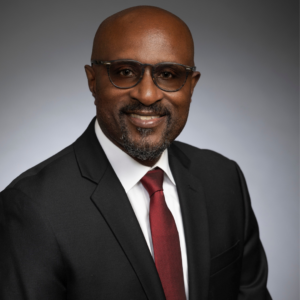PRAIRIE VIEW, Texas (December 16, 2022) — Dr. Noel Estwick, assistant professor of agriculture at Prairie View A&M University (PVAMU), was awarded $750,000 by the Department of Energy to support his Urban Integrated Field Lab (IFL) in Southeast Texas Southeast Texas (SETx), specifically the Beaumont-Port Arthur region to be labeled as SETx-IFL.
Dr. Estwick and his team are excited about the opportunity this funding provides the PVAMU agriculture department.
“I was ecstatic when I received the news that the grant was funded,” said Estwick. “The Beaumont-Port Arthur Metropolitan Statistical Area (MSA) of the USA is extremely diverse and has numerous vulnerable communities. I strongly believe that SETx-IFL is unique and will make critical contributions in the study region to our understanding of impacts of flooding and air pollution; generate relevant solutions to foster community resilience; contribute to critical planning and decision-making.”
“As an R2 institution, PVAMU is in elite company. This project will bolster our R2 status we map out a path toward excellence in research. Additionally, research will offer numerous benefits to PVAMU students,” said PVAMU Vice President of Research & Innovation Magesh Rajan, Ph.D., P.E., MBA. “The integration of concepts and experiences from this research will strengthen the coursework in PVAMU agriculture classes, grant students valuable research experience working with human subjects, and better prepare them to enter the workforce or pursue graduate studies.”
The Gulf Coast contains an extensive and diverse range of natural features and human settlements, with a disproportionate number of vulnerable communities. The region faces regular “acute-on-chronic” hazards in which short-notice technological and natural stressors (e.g., coastal storms, oil spills) occur alongside long-term, chronic environmental, industrial, and social stressors (e.g., subsidence, population growth, toxic pollution). This region will serve as a bellwether of change, providing either successful or failed adaptation of these compounded and coupled crises.
“In addition to increasing frequency, disasters are becoming more complex. I believe this research will expose me to new and complex challenges communities face in times of disaster,” said Estwick. “More important, it will better position me to make meaningful contributions to problem solving and the creation of solutions that improve the quality of life for residents and businesses as they prepare for mitigate, respond to and recover from disasters.”
Addressing the challenges facing the Gulf Coast requires scientific understanding in how the Earth system and the water cycle will change in the coming decades; and how anthropogenic alterations will affect the water cycle and air pollution through urbanization and human migration, water infrastructure, and land cover change; and how community level green infrastructure intended to mitigate these stressors can in turn alter physical processes and the water cycle.
The Urban Integrated Field Lab will help determine which processes and variables need to be captured in regional scale hydrological and atmospheric models so that they are representative of the conditions experienced by local communities and help inform adaptation strategies. And develop an understanding of the linkages between and within natural, built, and social systems in urbanized regions to better support natural and human resilience.
The team is comprised of researchers from four Texas universities. University of Texas, Austin, Texas A&M University, Prairie View A&M University, Lamar University and Oak Ridge National Laboratory (ORNL), Tennessee.
“This grant affords me the opportunity to join an excellent multi-disciplinary team of research scientists,” said Estwick. “Given the diverse challenges (environmental, human, infrastructure etc.) and complexities in in the Beaumont-Port Arthur MSA, I am looking forward to working with stakeholder groups on new challenges and being part of an extremely competent research team that will generate cutting edge solutions to those challenges.”
###
By Jenna Craig

